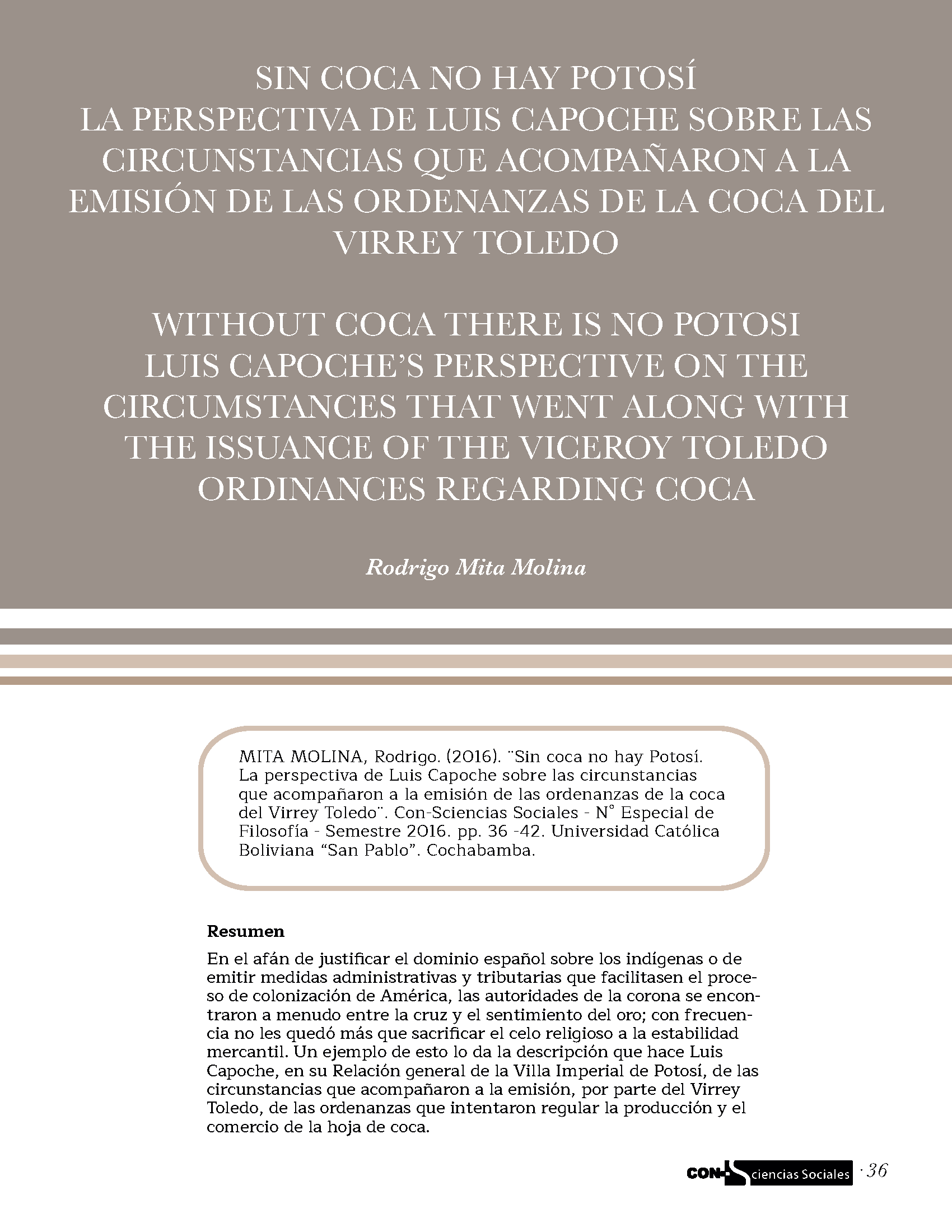Without coca there is no Potosi Luis Capoche’s perspective on the circumstances that went along with the issuance of the Viceroy Toledo ordinances regarding coca
DOI:
https://doi.org/10.35319/consciencias.20171760Abstract
In the eagerness to justify the Spanish dominion over the natives or to issue administrative and tax measures that ease the process of America’s colonization , the royal authorities often found themselves between the cross and the feeling of gold; often they had no choice but to sacrifice religious zeal over trade stability. An example of this is given by Luis Capoche’s description, in his Main relationship of the “Villa Imperial de Poto- sí”, on the circumstances that went along with the issuance, by Viceroy Toledo and the ordinan- ces that attempted to regulate the production and the trade of the coca leaf.
Downloads
References
Bartolomé Arzáns de Orsúa y Vela, Historia de la Villa Imperial de Potosí t. I, Brown University Press, Providence 1965
Luis Capoche, Relación General de La Villa Imperial de Potosí. Biblioteca de Autores Españoles t. CXXII, Ediciones Atlas, Madrid 1959
Guillermo Lohmann Villena, “Las ‘Ordenanzas de la coca’ del Conde de Nieva (1563)”, en Jahrbuch für Geschichte von Staat, Wirtschaft und Gesellschaft Lateinamerikas no 4, Böhlau Verlag, Köln 1967 DOI: https://doi.org/10.7767/jbla.1967.4.1.283
Juan de Matienzo, Gobierno del Perú, Facultad de Filosofía y Letras, Buenos Aires 1910
Pedro de Cieza de León, Crónica del Perú. El señorío de los incas. Biblioteca Ayacucho, Caracas 2005
René Zavaleta Mercado, Bolivia: crecimiento de la idea nacional, CASA, La Habana 1967
Guillermo Lohmann Villena, “Las ‘Ordenanzas de la coca’ del Conde de Nieva (1563)”, ed. cit.
Roberto Levillier, Gobernantes del Perú. Cartas y papeles t. III, Sucesores de Rivadeneyra, Madrid 1921

Downloads
Published
How to Cite
Issue
Section
License
Copyright (c) 2017 Revista Con-Sciencias Sociales

This work is licensed under a Creative Commons Attribution-NonCommercial 4.0 International License.









